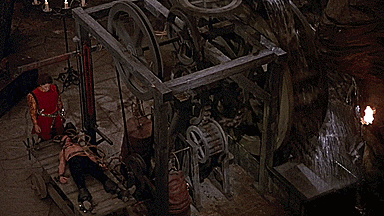how to retire early
02 April 2021 — 21 min read
one of the most frequently asked questions about the trail is “how did you get the time off to do it?”. when i hit the AT in march of 2020, i recall the first night at stover creek shelter. it occurred to me that in some respects the folks there that night, shouldering all their hopes, dreams, fears and anxieties over the daunting challenge ahead had actually done one of the hardest parts of through hiking the AT, and that’s getting their finances set up, and their lives put on hold so they could take 7 months off to hike. i am rarely open about my retired status in face to face conversations unless i detect a kindred spirit. there are a ton of assumptions that come with being retired at 41. what isn’t understood is that just like a through hike, that is achieved by putting one foot in front of the other, the finances required to retire early is about putting one dollar in front of the next. so today i’m going to do a scratch course in early retirement. we’re just going to scratch the surface, but i’ll add some links to other blogs where you can dive deep if you like. just like many things, you can make it as easy or complicated as you want. personally, i’m into simplicity, so that’s the bias i’m bringing to this conversation, and my own path to early retirement is a simple one. on the flip side, with a couple years of hard hustling, you can quickly build a small real estate empire and be retired save a handful of hours a year. if you’re into that idea, your woman is paula pant over at afford anything. side note, apparently one of my friends went to school with paula when she was a kid. i hope to meet her some day. she seems amazing.

why retire early
i love my job and don’t want to ever retire!
this is one of the first things i hear a lot about early retirement. i’m happy that some folks love their jobs that much. i never have. in fact, one of the things i learned over my measly 20 year career is that no matter how much i love a job in the first days and weeks, ultimately i don’t enjoy doing the same thing every day for years on end. also, meetings are the most life sucking waste of time ever invented.

another side note, in searching for that gif, i realize i could fill this entire post with relevant “princess bride” gifs. i won’t, though i’m tempted.
what’s the point of a job anyway? for most of us it’s the paycheck. folks like to argue against this, but answer this question: if you had a billion dollars, would you keep your job? for most of us, the answer is “hell no.” if we actually had a billion dollars we’d probably be embarrassed to admit our job to our billionaire friends. second question: what would you do? (we’ll get to that in a minute) so why retire early? for me it’s simple. i don’t enjoy having a job.

what is early retirement?
this seems like an odd question, but it’s one that isn’t thought through. folks assume early retirement is like regular retirement. you retire, putter in your garden, do some traveling, get old, and die. that sounds fun and all, but not for 60 years, which is what i hope i have left. in early retirement you’re casting off the chains of your job so you have time to do your work.
“wait, what? work?”
“yeah, work.”
remember that second question, “if you had a billion dollars, what would you do?” that’s your work. if i had a billion dollars, i’d probably pay someone to fix up my house because it’s a permanent construction zone at the moment, and that gets a little tiresome, and then i’d get down to figuring out how leverage all this money to do good. my chosen work is trying to figure out how to do good. i don’t have a billion dollars, so the work won’t involve figuring out how to spend it, but i do spend my life trying to do good. for some their answer might be that the billion dollars pays the bills so they can make art full time, or maybe you absolutely love timber framing, or setting up a nonprofit, or coding apps, or fighting crime as a flying rodent. only wankers like larry ellison have billions and don’t do anything for others with it.
when you’re retired you get to do the work you want to do instead of the job that you have to do. early retirement is whatever you want it to be. for a very few of us, the “i love my job and don’t ever want to retire” crowd, the venn diagram of their job and work is essentially a circle. those folks are lucky, but again i ask to these folks, if you had a billion dollars, would your job look the same as it does now? when you no longer need a paycheck, you’re free to do anything, including stay at your job if you like. a word of caution here, sitting on the beach eating bon-bons gets boring really fast. if you retire hoping to do that for 60 years, you’re gonna have a bad time.

how to retire early
civilization is a limitless multiplication of unnecessary necessaries. — mark twain
step 1. track your expenses.
i’m a pretty zealous environmentalist. i think a lot about my personal impact on the planet. i’ve had daydreams where when you die, purgatory is that you have to clean up and sort out the mess you left over the course of your life. my hope is that if faced with that, my pile would be substantially smaller than my peers. for me, buying things that end up in a landfill is a sin. it should be noted that this is a personal challenge for myself, like keeping from touching the lava in the living room by staying on the furniture. it’s a fabricated way to challenge myself in a way i find enjoyable. one of the consequences of this is that i’m very efficient with money. i don’t need a lot, and that makes early retirement a whole lot easier, but it’s not strictly necessary.
financial independence / early retirement, often abbreviated FIRE, is a fairly simple math problem. don’t be scared that i said math, i assure you, i’m worse at math than you are. at the root of it all is your yearly expenses. if your yearly expenses are covered in perpetuity, you’re financially independent and can retire, or not. your choice. a lot of folks have budgets to ensure they don’t overspend, but this doesn’t help you plan for the future. budgets are safety nets, they don’t get you places. you need to know with reasonable detail how much you intend to spend in retirement. i say intend because if you’re planning on living a lavish lifestyle in retirement, and you aren’t already, your current expenses aren’t going to help as much.
i was pretty much already living the life i wanted post job, so it was a simple matter of tracking my expenses. there are myriad ways of doing this automatically, but being the privacy and security wonk that i am, that didn’t work for me. i created a spreadsheet and tracked all my income and outgoes (expenses) for a number of years to get a reasonable average that i could use. i worked from home for the last years of my job, but it’s worth noting that folks that commute usually have additional expenses related to travel and clothing that could disappear once they don’t have to go into an office every day.
once you have your expenses target, you need to start saving.

step 2. save. save. save. (invest, invest, invest)
how much? i’m going to say 33x your yearly expenses, but only because that’s what i did. there is a lot of writing on this topic, with some folks pointing out you have a very high probability of getting away with 25x. if you have 50x, everyone agrees you’re 100% safe. in all of these scenarios, including 25x, you also have a probability of dying with a ton more money than you started with. note that this also depends on what your financially independent life looks like. the assumption with these multiples is that you’re not earning a single penny after the day you retire. in my calculations in order to lower my risk, i hedged my bet by (1) assuming i wasn’t going to have any income post retirement, including social security (2) assuming i’d be paying my mortgage forever. neither of these things are true.
so now the logical thing to do is freak out because holy shit, 33x my yearly expenses, are you kidding me?!?!?
money in your checking account is not what we’re looking for here. money in a checking account is slowly losing value over time because the current inflation rate is larger than what most checking accounts are paying in interest. hold on, don’t leave, i’ll explain what that means. we all hear stories where grandpa recounts how he got paid a shiny nickel and then used that to buy his first bike, and we sort of think, what, you got paid a measly nickel? and what, you bought a friggin bike with it?!?!? that’s inflation in a nutshell. if grandpa had foregone the bike, saved that nickel, and pulled it out today, you’d be unimpressed because today its just a nickel. it’s the same for your checking account. if you have money sitting in there for 60 years it won’t buy as much stuff as it can right now.
our favorite holding period is forever. — warren buffett
the savings we’re talking about here is in investments. investments allow us to over time beat inflation. observant readers and blind folks whose text to speech engine told them will note that i italicized “over time”. this might be the most important point i make here. as anyone knows, the stock market is like a roller coaster from hell. bring up a graph of the last week in the stock market and imagine a roller coaster traversing the line. i don’t even know what week you’re reading this, but i can assure you that no one will ride that coaster and not have some kind of injury. now zoom out, 5 years, 10 years, 20 years, 50 years. suddenly that doom coaster isn’t so bad. you might even notice that overall, minus a few notable crashes it’s a pretty smooth ride, and that ride is always up. i don’t look at my investments on a daily basis. once in a blue moon because the news is freaking out i look only out of a sense of amusement. gaining and losing a years salary in one week is not uncommon when the market is exceptionally volatile. it’s just noise, ignore it. what we care is that general upward trend on the very long timelines.
what stocks (stonks?) should i invest in? all of them. literally. individual companies come and go. yahoo is the stock you wished you had when i was in college. it was even a plot point in one of the back to the future movies. who is yahoo now? today it’s all about the FAANG (facebook, amazon, apple, netflix, google). how long will it last? who cares.
my advice to the trustee [for my wife] could not be more simple: put 10 per cent of the cash in short-term government bonds and 90 per cent in very low-cost S&P 500 index fund. — warren buffett
companies come and go. if you invest in one, you could get lucky, but you also risk losing all your money. so what if you split your investments between a few companies? well if those companies are all in a single industry or related industries, they could go down together. so what do do? how about just invest in every company over all the industries? each time you add more companies into your investment portfolio you lower your risk that any one failing will significantly impact you. it should be noted that you also lower the amount you’re potentially going to make, especially in the sort term. as i mentioned, i’m risk averse, so for me, i wanted something that balances risk and reward. i’m not going to get rich overnight in the stock market, but i’m also not going to lose it all. if we invest in the entire stock market over time (there is that phrase again) we can expect to make about 7% / year on average. the best part is thanks to a guy named jack bogle, it couldn’t be easier.
jack bogle is the inventor of “index funds”. when you hear terms like “the s&p 500” this is a group of 500 companies. before jack if you wanted to invest in “the s&p 500” you had to buy 500 individual stocks. an index fund allows you to buy all 500 in one shot. the index funds i invest in are VTSAX (vanguard’s total stock market index fund) and VBLTX (vanguard’s total bond market index fund). literally those two. in fact, when i was working, i was only invested in VTSAX because it has higher returns (but more risk). when i had regular job income, i felt comfortable taking on a little bit more risk. i also kept some money out of the market in a regular savings account in case the worst worst case scenario happened, a stock market tank and i lost my job at the same time.

step 3. patience. (but not as much as you think)
if you’re putting money into your investment account you’re making money on that money. you put a bit in every time you get a paycheck or money from a side hustle. at the beginning, like on a through hike, it starts out as just a day hike. then you’re on a camping trip. then you’re on a weekend camping trip, no, wait, a week long backpacking trip. then you get kicked off because of COVID. er. sorry. i mean, then woah, you’re on a month long backpacking trip? at that point you’re well on your way. each footstep is added to every footstep before until you have a line crossing parks, state boundaries, mountain ranges, and finally countries and continents. it’s even better with dollars. each dollar added not only adds a dollar, but over time that dollar generates more dollars and those dollars generate their own dollars, like a snowball rolling downhill, gaining mass and momentum. toward the end it’s truly incredible as you’re making more via your investments than you are at your job. adding a year onto your employment in a good year will net you multiple years of expenses. the length of time it takes is based on your savings rate. if you can only save 5%, its going to take 66 years to retire, but if you can save 50%, it’ll likely only take you 17 years to retire, and this assumes you have absolutely no savings to start. mr. money mustache wrote a great blog post the shockingly simple math behind early retirement outlining some of the details, but at least one is paramount, “cutting your spending rate is much more powerful than increasing your income. . . . every permanent drop in your spending has a double effect: it increases the amount of money you have left over to save each month and it permanently decreases the amount you’ll need every month for the rest of your life.”
the less you need in retirement, the less you need to save, but as we outlined earlier it’s magnitudes more. for every $1 i need in retirement, i need $33 invested, per my 33x target. it’s worth going through your expenses and seeing exactly what you’re spending money on, and whether it’s something that you actually want to be spending money on. this is one of the key concepts in the book your money or your life. make sure you’re spending money on the things you want. when i started tracking my expenses i suddenly realized exactly what i was spending on beer. i like beer. i like fancy beers, and trying new beers, visiting breweries, having beers with friends, etc. it’s a part of my life that brings me joy, and i want to spend money on it, but maybe not quite as much as i was, so i cut back a bit. other categories i realized i wasn’t spending nearly as much as i actually wanted to, like on gifts for people, so i started spending more.

step 4. prepare for ludicrous speed.
as you hike the path toward financial independence / early retirement you pass milestones like when you realize you have enough to cover your expenses for a year, 2 years, 5 years. things start to feel more under control. you have enough money that even if you lost your job tomorrow it wouldn’t really matter. you’d need to find another, but the bills would be paid while you looked. you pass the $100,000, $200,000 $500,000 marks. your investment account money snowball starts increasing in size at a fairly alarming rate. it’s not uncommon that you make or lose 5 figures in a week (or both). you learn to ignore it. in fact you don’t even care to look. eventually you’re thousands of miles on your through hike and you can actually see katahdin. it’s still more than a week away though. a year more or less at your job is not as important as you think it is. i postponed my retirement by a year after the stock market had a bit of a fit after the president got us into two simultaneous trade wars. not technically necessary, another hedge to soothe my risk averse personality. at some point i started investing some of my assets in VBLTX. as i mentioned earlier bonds don’t make as much as stocks, but they’re far less volatile and therefore less risky. the financial folks i read and follow advise to diversify your portfolio somewhere between 80%/20% and 90%/10% stocks/bonds. i chose 90/10, because by this point things felt more concrete than at the beginning when i chose my 33x savings target. i could start to see incomes post retirement. there has been considerable work by michael kitces on “sequence of returns risk” that shows that the first 10 years of a retirement is a crucial time. if that 10 years goes well, it doesn’t really matter what the rest looks like because you have such a nest egg at that point it’s hard to erode. on the other hand, if the first 10 years is terrible, it can be very hard to catch up.

step 5. financial independence. retire if you got em.
one day you’ll get to a point where you look at your finances, expenses, and your life and realize you did it. and you’ll realize absolutely nothing has changed. some tiny numbers on spreadsheets is all. maybe color them green. you’ve made it to the sign on katahdin. it’s all rather unexciting. you plan your last day at work, say your good byes and you’re done. for some weeks it’s just vacation, but one day it’ll dawn on you that you never have to actually go back to a job ever again. that’s when it really sinks in. you’ll be hiking and suddenly realize that it’s tuesday at 10 and all your former coworkers are in that horrible weekly meeting. you’ll smile and carry on. it’s really liberating, but it can also be daunting. the rest of your life is now up to you. you now have the time to do anything and deciding what you actually want to do is a challenge. i can’t really tell you much more. that’s where i am in this process. my plan had been to retire, do some life clean up, and then hike the AT and figure out what i actually wanted to do next. we know how that turned out. i spent last summer dinkng around doing a hojillion projects for myself and others. it was good, but i’m looking to focus my energies a bit more. that brings me to one last important point. stay flexible. we can’t predict the future. as i mentioned earlier, postponing retirement a year isn’t a big deal. going back to work post retirement isn’t a big deal. and ultimately, going back to work is the worst case scenario, and it’s likely what you’re doing every day right now anyway.

moar reading
all of the above is my brief, lets get it all out in one post overview of how to retire early. ultimately it comes down to save more than you spend, invest the difference. the more you can save, the less time you’ll have to work. underlying all of this is some pretty interesting reading. i specifically recommend the following:
books: your money or your life. i have some very early editions of this book and while the bulk of it is the same (track your expense categories, align with your life goals) some of the older editions encourage you to put all your money in a savings account that yields 20% interest! that isn’t even possible today. i understand a new version of the book was released in the last few years that now advocates for index fund investing.
the millionaire next door. some researchers wanted to find out what millionaires have in common, so invited them in to interviews. all these folks showed up in beater cars, worn out clothes, and small, but well kept houses. it turned out that the folks with the fancy cars and suits had fancy cars and suits and not a lot of actual money. more of a fun read than particularly educational, but it does make you consider the value of money.
blogs mr. money mustache (MMM) pete adney is a legend, and rightly so. he was one of the first to blog the details of financial independence / early retirement. he’s also heavily fixated on efficiency and has no patience for waste. know however that his persona mr. money mustache is highly opinionated and will threaten face punches, which i’ve heard some find off putting. pete himself is very mild mannered.
afford anything mentioned above, paula pant outlines strategies for early retirement based on side hustles. she specifically advocates getting real estate and becoming a landlord.
jlcollinsnh jim collins learned the hard way that stock picking is not the way to go. he’s now a heavy advocate and beneficiary of index fund investing. his blog started as a letter to his daughter on how to manage money. it’s grown a bit from there, but his stock series is a fantastic resource on the basics of investing what where and why. highly recommended, though you’ll just end up investing in VTSAX at the end.
1500 days to freedom (mr. 1500) his blog is particularly dear to my heart. carl had a similar path to me. bad day at work, discovered mr. money mustache, decided to retire early. he blogged that entire journey and retired a couple years ahead of me. he is very transparent about his finances and though he’s been retired a few years, still publishes his monthly gains. he’s also into fart jokes and beer. we’ve talked on twitter and email a few times, and he seems like a kindred spirit.
livingafi (dr. doom) reached financial independence in 2015 and retired early. eventually stopped blogging, until a few weeks ago when he wrote a post about an unplanned divorce, surprise health issues, and having to go back to work. dun Dun DUNNNN! the dreaded worst case scenario! oh the horror! but guess what? he has 20% more money than he had the day he retired! he’s going back to work because the increased expenses of being single, and his health issue requires expensive treatment and he anticipates that his investments may not be enough. (i’ll save my multi-post rant about my disappointment in the american healthcare system for another time.) this is the flexibility i’m advocating for at the end of this post. he also anticipates that he’ll only need to work a couple years before re-retirement.
there are countless other blogs i also read when i was in my save and invest phase. all of them have something to add to the discussion, from explaining concepts in a new light, to frugal hacks (if that’s your thing). if you’re interested they’re not hard to find, but these 5 in particular i think are the creme of the crop. they’ll also link you to many of the others.
